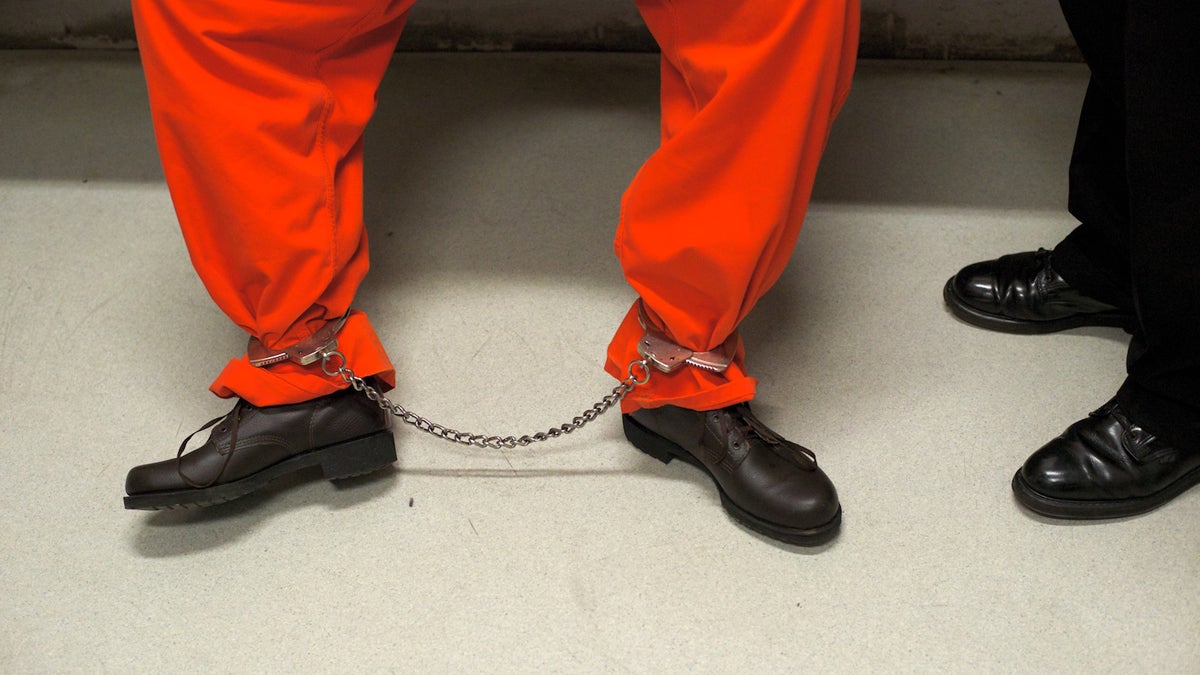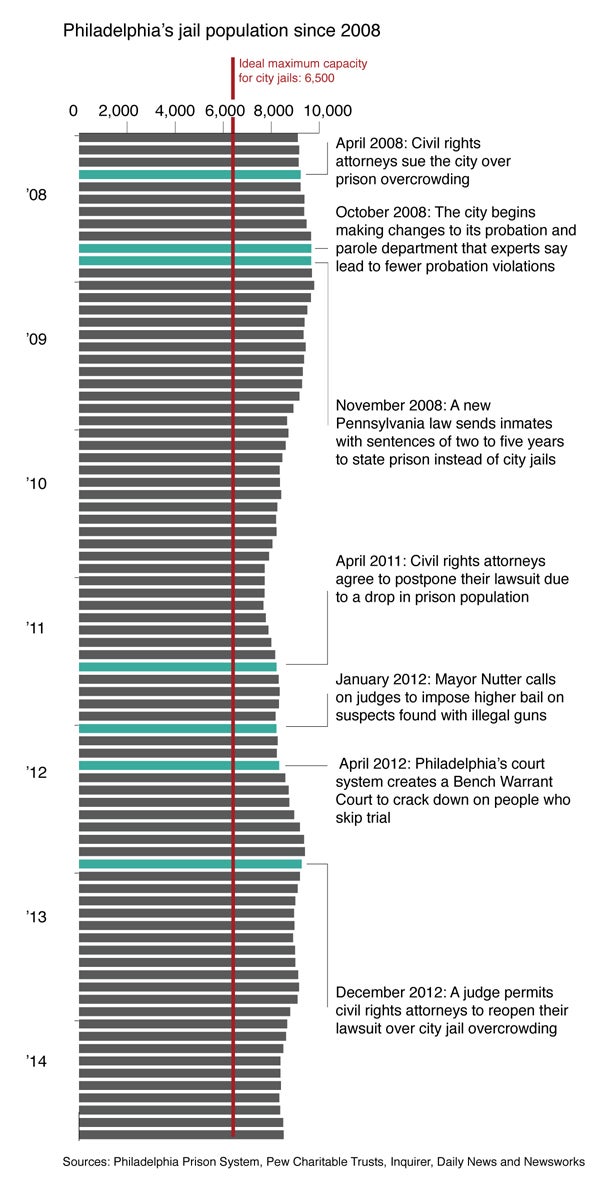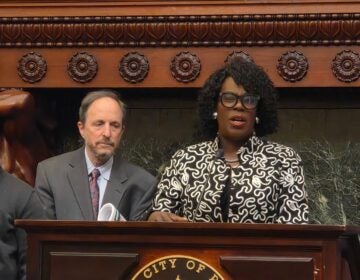Philly prisons still jam-packed, but not as badly as before
Listen
An inmate wearing a orange jumpsuit is seen chained up in the transition area that leads to the maximum security facility of the prison. (Bas Slabbers/for NewsWorks)
Philadelphia’s prisons are less crowded than they used to be, but some of the progress Mayor Michael Nutter made early in his tenure has been reversed in recent years.
Second in an occasional series
When Mayor Michael Nutter first took office, more than 9,000 inmates jammed Philadelphia’s prison system on a daily basis. That’s 2,500 more people than those prisons were built to hold.
“We incarcerate far too many people,” said David Rudovsky, a civil rights lawyer in Philadelphia. “It costs us a huge amount of money.”
City officials expect to spend more than $240 million this fiscal year on the prison system.
Rudovsky said there’s a human cost to the city’s crowded jails, too.
“You’ve got to envision what it is to be three persons in a very small cell,” said Rudovsky. “The person sitting on the floor, his head is about six inches from the toilet. There’s no room for anybody to move in that cell. We have documented cases where people are not provided adequate medical care because the numbers of inmates are too high.”

Early in Nutter’s tenure, the prison population started falling dramatically. By the beginning of 2011, the number of inmates fell to just below 7,700, still slightly over capacity, but much better.
Tom Innes, an attorney in the Philadelphia public defender association, which has a history of pulling no punches in criticizing Nutter, said the mayor deserves a lot of credit for reining in the prison population early on.
“When Mayor Nutter came in, he put into place one person after the next who have just done a lot of innovative thinking about how to get people out of jail,” he said. “A lot of getting into the weeds in terms of who is in jail to get an idea of ‘Why are they in jail? Do they need to be in jail? Can we figure out ways to get them out of jail without risking the safety of the community?'”
Criminal justice experts said other factors contributed to the drop, from District Attorney Seth Williams’ “smart on crime” approach to a change in Pennsylvania law that sent inmates with longer sentences to state prison instead of city jails.
Beginning in mid-2011, though, the city’s jail population started to creep up again. Throughout 2013, the prison system was back to being about 2,500 hundred inmates over capacity.
Crackdown fills cells
Experts said this happened for two reasons: First, Philadelphia created a Bench Warrant Court to crack down on fugitives. And second, to fight the city’s gun violence epidemic, Nutter asked the courts to set higher bails for suspects caught with illegal guns.
“It caused a spike in the number of people that were being held in jail,” said Everett Gillison, Nutter’s chief of staff. “But we were willing to trade that particular piece in order to make sure that we would bring down the incidents on the street of people getting shot and people getting killed. A year later, we had the lowest number of homicides in the city’s almost 40- or 50-year history.”
But Innes of the public defender association said setting higher bails for those charged — but not yet found guilty of — possessing illegal guns is unlawful.
“I don’t think the state of Pennsylvania or the city of Philadelphia has gotten that,” he said. “They don’t get it. It’s not constitutional to set bail only to punish people for being arrested.”
Over the past year, the prison population has dropped somewhat. But as of December, the city’s jails were still 1,700 inmates over capacity.
Full jails = good politics
Rudovsky, the civil rights lawyer, has sued the city government multiple times during the last few decades over its crowded jails. That record doesn’t make him optimistic about what the city’s next mayor will do to bring down the population, given the messages candidates use to gain votes.
“‘Re-elect me. I’ll lock up as many people as I can. The only way to keep us safe is to lock up a lot of people for a long time,'” he said. “That’s a message that politicians love to run on, and so for someone to buck that trend would be pretty unusual.”
But Ed McCann, the city’s first assistant district attorney, is more optimistic that the new mayor could make a difference — if the new administration takes a serious look at the impact of the war on drugs on the city’s prison population.
“Having been at this for 25 years, I really have a viewpoint that there at least needs to be a conversation about the way we prosecute, investigate, arrest on the narcotics cases,” he said. “I don’t think anybody’s necessarily afraid of the conversation or not willing to have it. I think it’s more a product of people’s day-to-day getting in the way of taking a look at the long view. So that could be something that whoever takes over from Mayor Nutter should really think about.”
Whether that successor does will have a big impact on prisoners and taxpayers alike.
WHYY is your source for fact-based, in-depth journalism and information. As a nonprofit organization, we rely on financial support from readers like you. Please give today.




